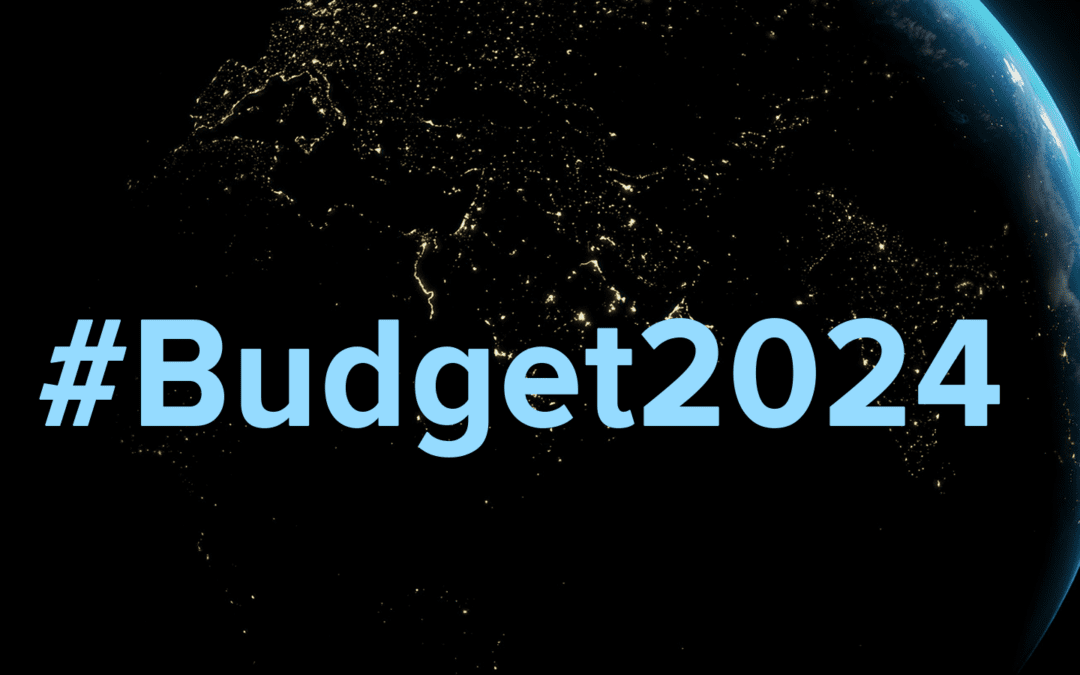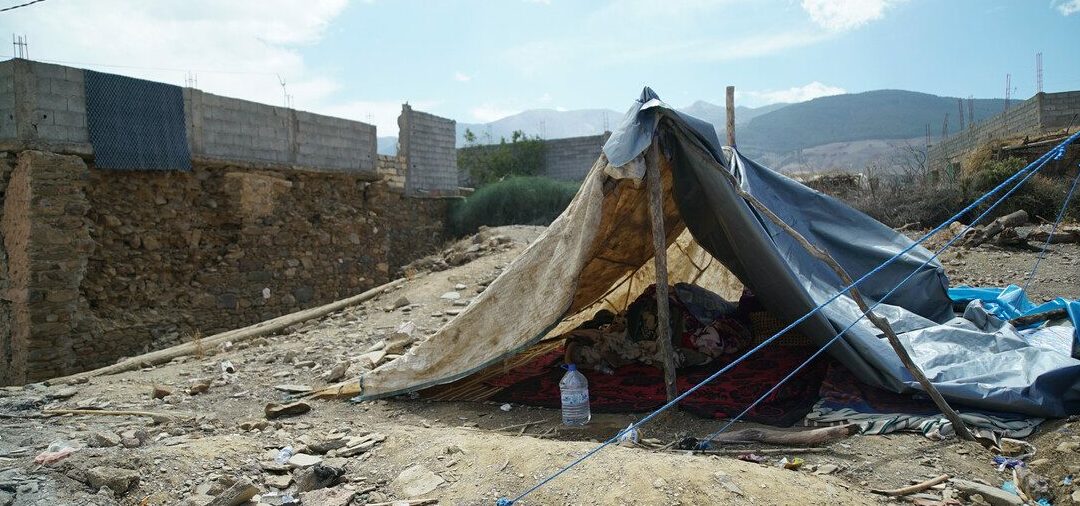Farah* is a 27-year-old business administration graduate whose second child was born just before the current conflict in Gaza and the region. She writes from Rafah, where she and another 1.4 million civilians live in fear of an impending ground offensive.
*All names have been changed for safety.
Photo: © 2024 Grayscale Media/CARE
Sept. 20, 2023 was a beautiful day. My son Omar* was born. The delivery was easy, and I was lucky to give birth in a hospital, with all the treatment and medication I required available. My husband, my daughter and I were so happy to welcome our newest family member.
We were full of hope for the future and love for each other.
Little did I know that only two weeks later, giving birth in Gaza would become a dangerous, life-threatening undertaking. In the past four months, some of my friends had their babies without anesthesia, even when having caesareans, and others had to give birth in shelters on dirty, cold floors, only aided by their mothers or other elderly women.
On Oct. 14, I left our house in northern Gaza hastily, under the threat and warning message to immediately evacuate. I left with the clothes I was wearing that morning, holding my daughter’s hand and carrying my then three-week-old son in my arms.
has turned into something harder than I could ever imagine.
Let me tell you about what it means to be a mother and a woman in Gaza right now.
I would really like you to understand.
1. Providing for my children is a daily struggle.
As a mother, it is my responsibility to provide for my children’s daily and basic needs, such as food, clothing and diapers. But since the start of the war, these essentials are not available. I feel helpless. I don’t have diapers for my four-month-old baby, and I cannot wash his clothes. The food available consists mainly of canned goods; there is no fresh food that allows me to cook nutritious meals for my family. There is no electricity or cooking gas either. I am glad that I am still breastfeeding my baby, but I don’t know where we will be able to get baby food or clean water to prepare food for him when he is a little bit older. We have no source of income now, and the prices for food and diapers in the market are skyrocketing. The market close to us is always overcrowded, and baby clothes are not available. We left with light clothes in October and have no winter clothes to keep us warm in the wet and cold months.
We share a small house in Rafah with 25 people. We are lucky that we do not have to live in a tent or on the streets, like so many others. We lie on the floor and don’t have any space or privacy, but at least we are protected from the cold and rain. Most people around us are sick with diarrhea, are coughing and have a cold. I could not vaccinate my baby yet, and I fear for his health and immune system, especially given how overcrowded our house is and how impossible it is to adhere to even basic hygiene standards, such as washing hands, without clean water and soap. Diseases and epidemics are spreading everywhere.
2. I have to put on a smile. But what I really want is to cry.
I always have to present the most calm and controlled face in front of my children so that I can maintain their mental well-being. I want to prevent them from feeling fear or developing psychological issues that could affect their personalities in the post-war period. I don’t want their future to be impacted by what is happening now. I try to constantly invent new games to play with them. I talk to my three-year-old about fun topics and tell her stories. I want them to forget about the war and experience as happy a childhood as possible. My four-month-old is always laughing and cooing. He is too young to understand what is going on. With Nadia, however, it is hard sometimes as she hears the sirens and jumps at the sound of the bombs and explosions. I hug my children as much as possible.
The war has very much affected me as a person. My feelings are a mix of fear and terror, and my mind is in constant anxiety about future events. I feel tense and under pressure all the time. I want to give them a sense of security that I personally have completely lost. Concealing how I really feel, being a rock for my children while everything inside me is breaking, is immensely exhausting. I feel numb due to the shock, trauma, and loss I am experiencing.
3. I am scared my children will have to survive this war without me.
What scares me the most now is to lose my family. They are everything to me. I fear losing one of my children, losing my husband, or other close family members. I am also afraid of dying without my children, and of my family losing me. I am afraid of what will happen to my children if they don’t have their parents to take care of them anymore. There are so many orphans around us, so many children who have lost their parents. I am also afraid of being injured and unable to provide for myself and my children, becoming dependent on someone else.
My life feels like a nightmare I cannot wake up from. Every morning,I thank God that we are still alive. Every day brings news of the death of a friend or relative. Every day is filled with news of horror, destruction, and ruin, along with the sounds of shelling and rockets and nonstop ambulance sirens. Every day we hear these sounds. We cannot sleep due to the sounds of planes and shelling. We fear death; we fear not waking up every time we try to sleep. Our lives are ones of pain and exhaustion. I also fear the future and what will happen after this war. We have no house to go back to. What will we do? Where will we go? Our future has become unknown.
4. There is no space for personal hygiene. No safety.
If you are a woman, you know what it is like to have your period. You know what you need and how you feel. Right now, we have no sanitary supplies. In the shelters, women must sometimes queue for hours to use the bathroom while feeling unwell and unable to dispose of tissues soaked in blood, as they do not have any hygiene pads. I know some underage girls who are really suffering, especially given how little privacy they have in the shelters in which hundreds of people have just one toilet to share. As women and girls, we do not feel safe. We cannot move around freely as we fear the shelling and destruction. We cannot gather with our friends for birthday parties, cultivate social relationships, pursue a hobby, or simply use social media to stay in touch as the internet is down most of the time. We feel isolated while at the same time having no privacy at all, sharing small rooms with strangers.
5. It feels like the world has forgotten about the women and children in Gaza.
What makes the daily struggles and psychological scars worse is that we feel that while the world watches, nothing seems to change, and we continue to suffer. I want the world to know that we are humans with human feelings. We love life and hope for a better future. We do not deserve all this destruction, devastation, and death. We have dreams; we love to work hard to achieve our goals and aspirations.
We do not want to live in fear, war after war, and we do not want our homes to be destroyed. We do not want to start our lives from scratch each time, mourning our friends, relatives, and children who did not survive. We want to evolve, progress, and thrive. We want our children to grow up in conditions that support and help them achieve their goals, dreams and aspirations.
My wish is simple.
I wish to live with my family and my loved ones in peace and security. Just like you, we want to live a good life and achieve our dreams away from death and war.
I hope the war ends today, to halt the otherwise inevitable horrors of tomorrow.
I hope you hear my words.
I hope you hear the voices of all the women and mothers in Gaza.
CARE’s work in Gaza and the West Bank
CARE International has been operating in Gaza and the West Bank since 1948. Prior to the current conflict, we were supporting about 200,000 Palestinians in Gaza and we continue to support about 300,000 in the West Bank to meet basic food needs, improve farming and agriculture, empower women to earn an income, support women’s leadership, and improve health programs focused on gender-based violence, sexual and reproductive health, and children’s mental health.
Since the escalation of the conflict, the CARE team in Gaza and their partners were able to distribute hygiene kits, shelter items such as blankets and mattresses, and drinking water to over 91,000 vulnerable displaced people. CARE also reached over 60,000 people with medical support, including medications, medical supplies, and primary health services.




